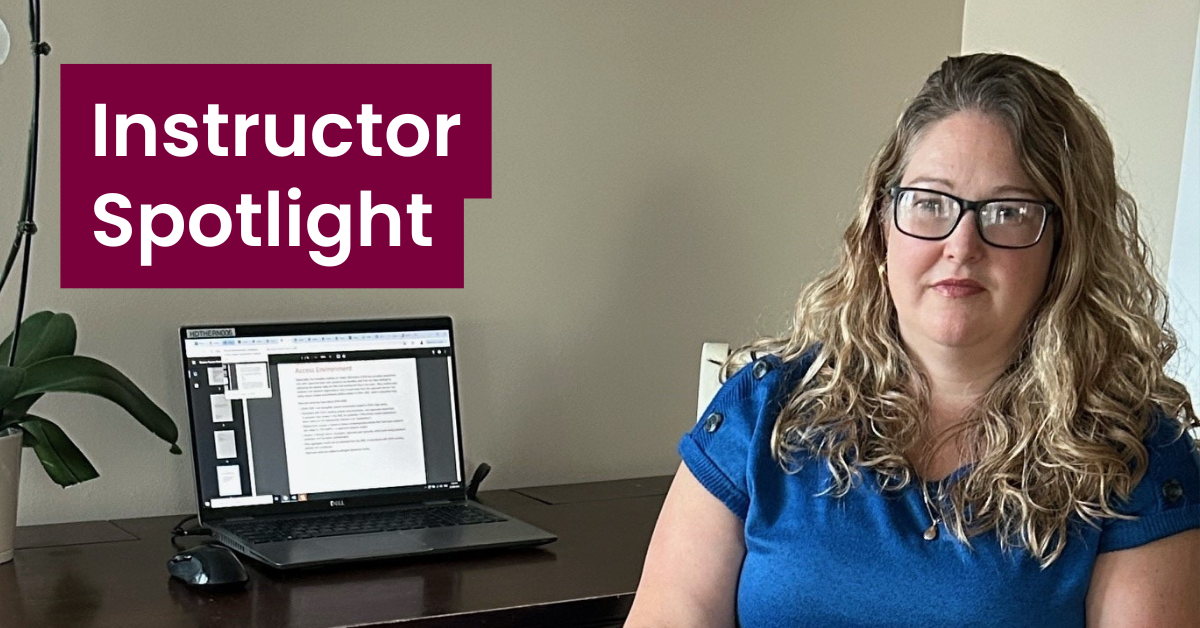Caring for Carer Employees: An Ethical Imperative

This article was published on hrreporter by Mallory Hendry, on December 10, 2024.
Free standard, guide, and McMaster con ed course provide employers with massive opportunity.
Somewhere between her PhD research on how home and community care was delivered in medically underserved Northern Ontario to her first job at Brock evaluating home care programs for Niagara Public Health, Allison Williams realized she was looking at a social justice issue.
A primary family carer—typically a woman—was doing most of the adult caregiving in the vast majority of cases, often without any provincial or federal support and with increasingly limited community supports. Whether they dropped out of the workforce altogether—missing out on salary, benefits, pension, and opportunities for advancement, and facing the challenges of re-entry once their loved one passed away—or stuck it out at their job enduring burnout, fatigue, and performance issues, these women had to rebuild their lives all over again.
“It didn’t take me long to connect the dots and realize this wasn’t right,” says Williams, now a professor of geography at McMaster University.
“We’ve been working so hard for how many years to gain gender equality at work and it’s all taken away because women are expected to provide unpaid care to adult family members? Consequently, our country’s economic engine isn’t operating as effectively as it could, we aren’t upholding gender equality at work or in society more broadly. There were so many things wrong. So, I thought to myself, OK, how am I going to change this?”
The workplace’s ethical imperative
After working in Saskatchewan for a while, Williams returned to MacMaster in 2004. Since then, the care economy has been the primary focus of her research program. Her latest project is doing something about the supporting carers at work, given that 5.2 million, or 1 in 4 employment-aged Canadians are balancing unpaid adult care with paid work.
She is leading a Healthy Productive Work Partnership Grant, Mobilizing a Caregiver-Friendly Workplace Standard: A Partnership Approach, where Williams gathered more than 20 partners both in Canada and abroad to build not only evidence for the importance of carer friendly workplaces (CFWPs), but to advocate for them given that caregiving is a common labour force concern.
One-third of Canada’s workforce are “carer employees” (CEs), most work full-time hours, and generally fall between 45 and 65 years old, making them the most experienced and well-trained segment of the workforce. Because caregiving is seen as a private issue contained to the home front, there can be stigma around the role. But there’s inevitable crossover to a CE’s professional life—and Williams argues it’s a workplace’s ethical imperative to support this growing employee group.
“It’s absolutely an equity, diversity, and inclusion issue,” she says. “There needs to be a push to integrate and normalize work and life, so that caregiving responsibilities can be equitably accommodated.”
Taking an HR lens, data shows that because CEs are stretched in so many different directions, they’re more likely to experience burnout, depression, and anxiety which, if not taken care of, can spiral into negative physical health outcomes. At that stage, there’s a high likelihood that the next step will be them leaning on disability insurance or exiting the workforce completely.
It is well established that fostering wellbeing in a company’s people leads to increased loyalty, higher productivity, and less absenteeism and the cost benefit analysis in support of CFWPs included in the intervention studies Williams spearheaded show the investment is quite minimal for the return the company sees.
One CFWP intervention with a large employer in Ontario significantly reduced adverse health outcomes, such as depression, psychosocial health, and self-reported health (p>0.5), as well as negative work outcomes related to: work role function, job security, schedule control, work-family conflict, family-work conflict, supervisor and co-worker support (p>0.5). Further the intervention was cost-effective, with a positive net benefit of $362,333.
Field research also identifies the No. 1 barrier to establishing a CFWP is that a critical shift in the collective mindset of the workplace hasn’t happened. First and foremost, everyone must recognize that caregiving comes to all of us. It’s time to shake the stigma, work together, and find ways to offer support, Williams urges. This may look like work sharing or paid or unpaid time off, for example, depending on the industry.
“Changing the culture is important for CEs to get the support they need and that comes down to workplace leadership championing the cause,” she explains. “Employers and HR professionals need to be motivated to engage in policies and programs that move the needle on workplace wellness and CE supports more broadly.”
How to create a carer friendly workplace
Along with collecting and spreading evidence-based information, the basis of the grant was to put in place a standard for CFWPs. McMaster University partnered with the Canadian Standards Association to build the CSA B701-17 (R2021), Carer-inclusive and accommodating organizations, which serves as “a recipe for how any workplace, irrespective of size or sector, can create a CFWP.”
“If a workplace is interested in building their EDI, mental health, work-life balance, or health and wellness capacity, they may take it on,” Williams says, adding that while it’s currently voluntary, ideally she’d like to see it evolve into a required standard that would bring Canada more in line with other countries in the global north, particularly fellow G7 countries, many of which do a better job of supporting CEs.
“We need to step it up,” she stresses.
A handbook that provides real-life case studies, as well as advice on how employers can help CEs was also created to accompany the standard. Williams worked with the CSA to provide the standard and the handbook free to everyone, anywhere in the world, but that offer comes to an end in March of 2025.
The standard provided the bases for a free online course via McMaster Continuing Education that serves as a “knowledge mobilization product” for the 17 projects that make up the partnership grant, including some interesting work looking at double-duty carers and Indigenous and new immigrant CEs. Unveiled last April on National Caregivers Day, the complimentary offering — which takes 10 hours and results in a micro credential — is available through 2029.
While there’s been movement in terms of downloading the standard and the guidebook and strong uptake on the course, Williams says there’s still a long way to go—and the importance of supporting CEs will only become more critical given the overall expansion of EDI, the emphasis on mental health, and Gen X and Gen Z prioritizing work-life balance. She urges leadership to look hard at their workplaces and see where change can be made to support CEs.
“It’s a demographic issue, an ethical issue, it’s an employee profile issue, and the standard, guide, and course provide an opportunity,” Williams says. “It’s about being motivated: employers need to embrace and champion this cause so it becomes part of the core organizational operating procedures of Canadian workplaces.”
This article was produced in partnership with McMaster University, School of Earth, Environment & Society.
Read more at HRReporter.
Caregiving, HealthRelated News
News Listing

Mastering the Art of Self-Regulation: 5 Tips to Soothe Your Nervous System
Health, Tips Corner, What's New
7 days ago

Meet Karen Ann Conlon: Guiding the next generation of health information management and health informatics professionals
Health, Instructor Spotlight
November 6, 2024

How to Prevent Common Chronic Diseases in Older Adults Through Nutritional Strategies
Health, Latest News, What's New
September 17, 2024
